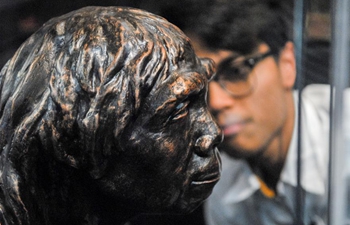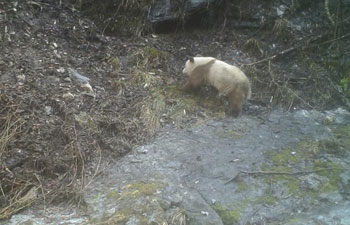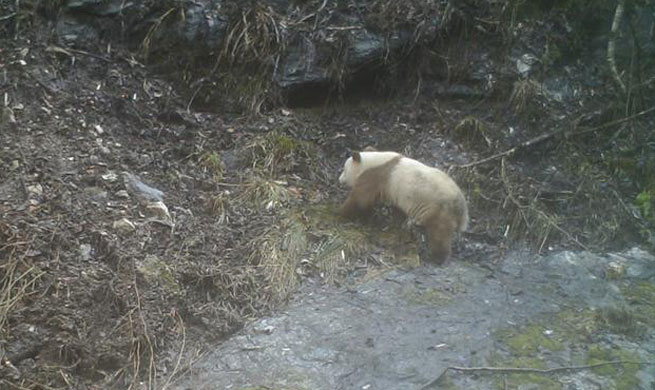HEFEI, March 29 (Xinhua) -- About 250 million years ago, something unknown wiped out most life on Earth. Scientists have suggested many possible causes for the end-Permian mass extinction or "Great Dying," yet the cause remains a mystery.
Chinese researchers have now found that continental chemical weathering was main environmental factor to cause the mass extinction and determined that that Siberian Traps erupted in the same period of time, plausibly enhanced the weathering process.
Scientists from the Chinese Academy of Sciences Key Laboratory of Crust-Mantle Materials and Environments and University of Science and Technology of China published their findings in the journal "Proceedings of the National Academy of Sciences of the United States of America" Monday.
Through analyzing the Lithium (Li) isotope in sedimentary rocks from the Meishan section of south China and building a dynamic seawater Li box model, researchers found light seawater Li isotopic signatures at the Permian-Triassic boundary (PTB) coincided with the most severe mass extinction in Earth's history.
Over the past decade, scientists around the world have proposed many hypotheses for the Great Dying: severe volcanism, a nearby supernova, environmental changes wrought by the formation of a super-continent or the devastating impact of a large asteroid.
"No one can confirm which theory is correct. But as the evidence began to accumulate in recent years, many scientists support the theory of Siberian Traps," said Xiao Yilin, the leading scientist of the research, also an isotope geochemistry researcher at University of Science and Technology of China.
The eruption of the Siberian Traps exposed an enormous amount of fresh black rock and triggered CO2 release, rapid global warming and acid rain, which in turn led to a rapid enhancement of continental weathering, according to the findings.
The enhanced continental weathering delivered excessive nutrients to the oceans that could lead to marine eutrophication, anoxia, acidification, ultimately resulting in the end-Permian mass extinction, according to Xiao.
"Our results provide independent geochemical evidence for an enhanced continental chemical weathering at the PTB, showing that continental weathering may provide a key link between terrestrial and marine ecological crises," Xiao said.

















